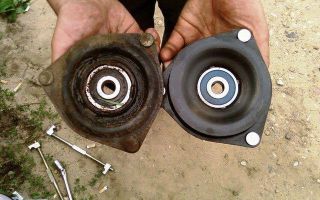Autocode - official website. Checking a car according to state standards. NUMBER or VIN code
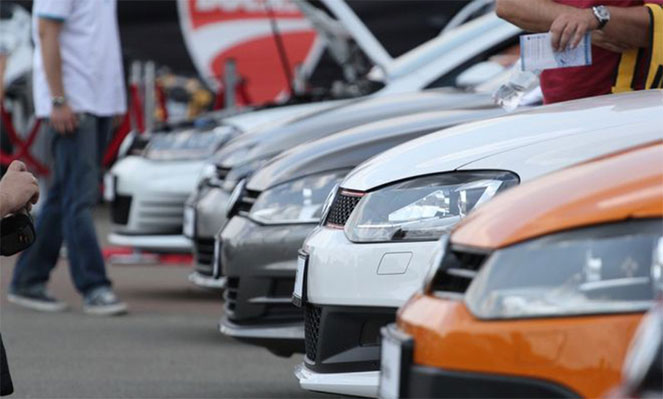
If after purchasing a car you find out that a registration ban has been imposed on the car, most likely you will not be able to drive it. Autocode will help you avoid the problem in advance!
Buying a car with a ban - check or not check
After the transaction is concluded, the new owner is given 10 days to complete registration, and then fines are levied in an accrual manner. It’s not uncommon for a situation to happen when a new owner comes to the traffic police and is denied registration of a vehicle. It turns out that the seller hid that his car had a registration ban.
Accordingly, the new owner cannot drive an unregistered car. In the worst case, the car is taken away, so it turns out to be stolen or pawned. At best, you have to pay a fine.
Therefore, before you decide to purchase a vehicle, do not forget to check the car for registration restrictions and thereby protect yourself from unnecessary hassle.
Get your car banned right now!
Consequences of the ban
The most harmless consequences are fines. If the new owner of the car does not submit documents to the traffic police in time to register the car, then he will have to pay. How much will it cost:
- Individuals will pay about 2,000 rubles.
- Legal entities – up to 10,000 rubles.
- Officials – up to 3,500 rubles.
To free the car from restrictions, the former owner of the car must pay off the debt. But this does not always happen!
How to check a car for registration bans
Checking your car for a ban is urgent. Autocode will help you deal with it in just 5 minutes!
The service offers to find out the history of the car by VIN or state license. number. Enter your vin data and start checking online. Next, the site will show a short report with the main characteristics of the machine. To check the car completely according to the state. number or vin, pay for the service, and a detailed report with the necessary information is yours!
What you will learn with Autocode:
- Who and when imposed a ban on car registration
- Has the car been in an accident?
- Is the car reported stolen?
- Last car mileage
- Information about previous owners, insurance, fines, etc.
The main advantage of Autocode and its difference from other services is that you can find out whether a ban on registration actions has been imposed by one state. car number online. This, at first glance, insignificant feature allows you to save time by not wasting it searching for the chassis number and other numbers.
Check your car's history right now!
Source: https://avtocod.ru/Proverka-avto-na-zapret-registracionnyh-deystviy
How to check a car for registration bans
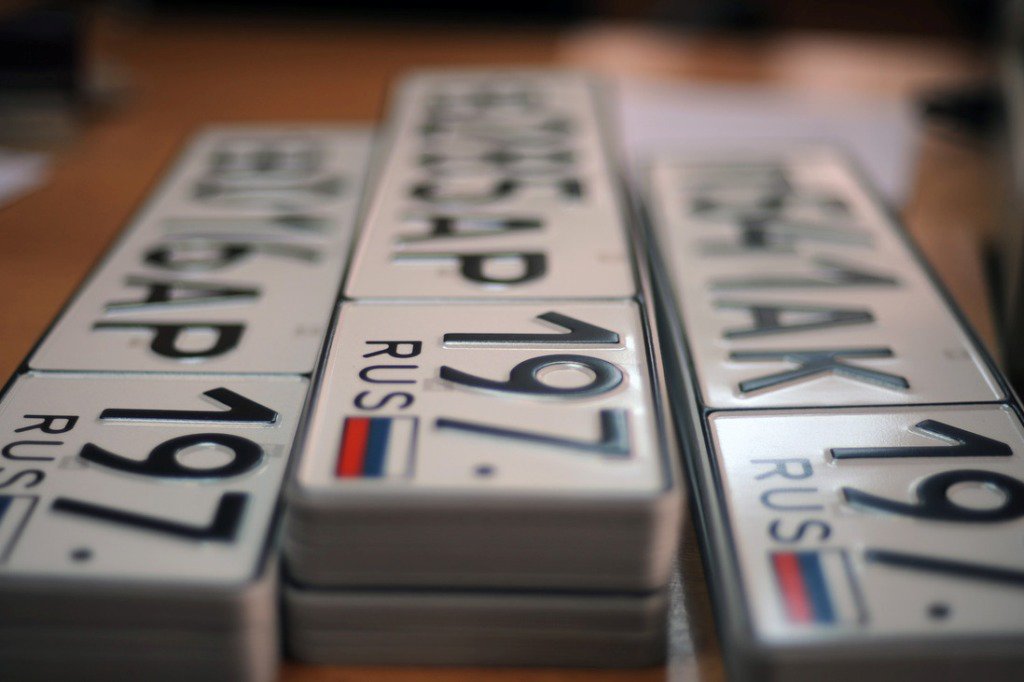
Quite often, buyers of used cars are faced with a dilemma such as the inability to register their new purchase with the traffic police.
Since the beginning of 2018, the introduction of such a legislative measure as a ban on registration of a car has been hotly debated among car owners.
Therefore, it became necessary for buyers to check the car for a registration ban. And many began to be interested in the question of what a ban on car registration means.
After the introduction of this measure, bailiffs have the right to impose restrictions on further registration actions with the vehicle due to the existence of debts of the previous owners.
If a debt is discovered, the bailiff service issues a decree prohibiting registry, after which it sends it to the traffic police.
This measure encourages the car owner to eliminate the reasons why this ban was imposed, or to fulfill certain obligations.
Bodies authorized to impose a ban
According to the Order of the Ministry of Internal Affairs of the Russian Federation, the basis for refusal to register a vehicle is the existence of prohibitions and restrictions that the following authorities are authorized to impose:
- Judicial authorities (in the event of controversial legal relations regarding the ownership of a vehicle, division of property between spouses).
A ban is imposed by a court to prevent the implementation of the subject of the dispute until a court decision is made. To ensure property claims, the court also has the right to impose restrictions on the car.
- Investigative authorities - if there is a suspicion of committing a crime using a vehicle, if the vehicle is wanted.
- Customs authorities - a ban can be imposed if there are suspicions about the illegal import of a vehicle into the territory of the state, in case of violation of legal requirements when preparing and receiving documentation on undergoing inspection by customs authorities and paying customs duties.
- Bailiff service - a ban is imposed if there is a court decision to collect debts from the owner of the car to pay fines, taxes, utility bills, alimony payments and other obligatory payments. For the right to impose restrictive measures to arise, a prerequisite is the existence of a court decision.
- Investigation department of the traffic police - if there is information about the participation of a vehicle in an accident, if there is damage to areas where plates are attached, areas where the VIN code is applied, body number, engine number. In this case, the vehicle is under arrest, which prohibits deregistration of the car until the traffic police search department checks the vehicle's license plates and confirms that the change did not occur during repairs.
- Social protection authorities have such powers if registration actions with a car affect the rights of minor children (social protection authorities have the right to apply to the court with such a requirement).
There are several ways to check a car for a registration ban.
- In the service of execution of court decisions. From the bailiffs you can find information related to the existing restrictions and arrests imposed on the car. To obtain such information, you must submit an official application. After receiving such a request, the service is obliged to provide a response in writing about the existing restrictions, arrests and the reasons for their imposition.
- In traffic police departments. To do this, you also need to make a request, after which employees are required to provide detailed information. There are two ways to get it:
- In the order of personal application with the corresponding application, which must indicate: model and make of the car, license plate number, identification data (body number, engine number, VIN code).
- Online using special services on official websites. To do this, you need to fill out a special form. For example, on the website gibdd.ru, select the “Online Services” section, which contains the “Car Check” block. After which a verification form appears, in which you must enter the VIN code of the vehicle, as well as the security code from the picture that appears. This service provides the opportunity to obtain all data about the car through the VIN code.
If restrictive measures are imposed on a personal car, then it will be impossible to carry out any registration actions.
We must remember! The process of purchasing a vehicle is simple - you only need to correctly draw up a contract. However, the new owner is not sure about the presence or absence of restrictive measures regarding the subject of the transaction. Therefore, the new owner runs the risk of buying a car that is under arrest and for which registration actions cannot be performed.
It will be possible to register a new acquisition only after the ban on registration of the car is lifted , i.e. after the document is issued by the authority that imposed the restrictive measures.
This document must indicate the absence of any prohibitions. Each restriction must be lifted by a separate resolution.
For example, if a ban on registration of a car was imposed by several bailiffs, then it is necessary to obtain from each a separate resolution lifting these sanctions.
It is also possible to remove restrictive measures by a ruling of the court that made such a decision, as well as by a ruling of a higher court if a complaint has been filed against such a decision. The bans that were imposed by the search department of the traffic police are lifted by the same department after checking the vehicle.
Procedure for removing restrictive measures from a vehicle
If your personal car is subject to restrictions or prohibitions, you can use the following instructions to remove them:
- Determination of the restrictive measure and the reasons for the imposition (through a personal appeal to a government agency or using an Internet resource).
- After receiving a copy of the relevant resolution that imposed the corresponding prohibitive measure, study this document. Determine the reasons that led to the imposition of a ban or restriction. If you disagree with the decision, you can appeal it. If guilty, it is necessary to take measures to eliminate the reasons for imposing restrictive measures and pay off existing debts.
- After fulfilling the debt obligations, it is necessary to obtain a resolution to lift the prohibitive measure on the vehicle from the authority that applied it.
- In order for the issue to be resolved more quickly, you should not wait until the document is sent to the traffic police (the process may take a long time), you must personally bring a copy of the payment slip, as well as a photocopy of the resolution that lifted the restrictions and arrests.
Video: Bought a car with a registration ban
Are there differences between the concepts of “arrest”, “prohibition” and “restriction”?
In relation to any property, including personal cars, in accordance with the law, measures may be applied to limit the actions of owners with their property. At the same time, these concepts have their differences.
Restrictive measures involve certain prohibitions that deprive the owner of the property of exercising his rights as an owner (possession, use, disposal). By restriction we mean: the vehicle is under pledge, under arrest, or leased.
The ban involves measures established by the relevant authorized state bodies that prevent the owner from exercising the rights to dispose of his car.
The seizure of a vehicle involves the implementation of a number of measures in relation to it by authorized bodies (inventory, imposition of a ban by order). Such an authorized body may be a court that seizes the car to secure claims of a property nature.
Knowing the main differences between these concepts makes it possible for vehicle owners to challenge an incorrectly chosen and applied restrictive measure by an official.
You will be interested in:
Source: http://pravo-auto.com/proverka-avtomobilya-na-zapret-registracionnyx-dejstvij/
How to check a car for a registration ban?
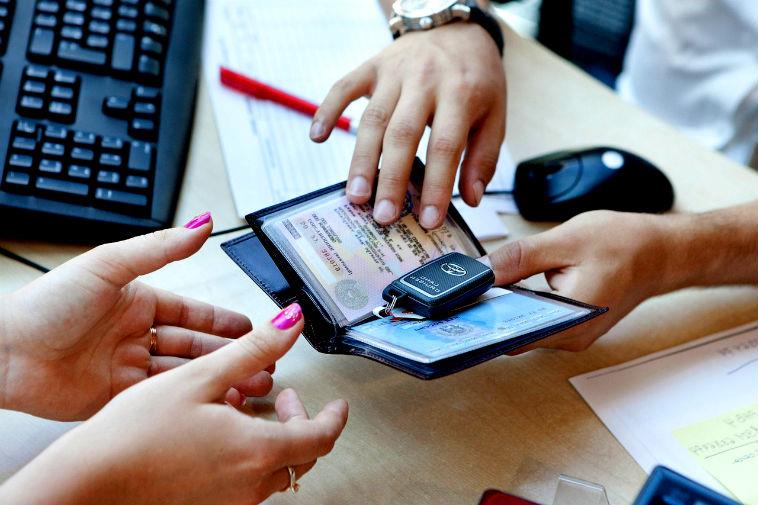
Buyers of new cars are faced with the fact that they are denied registration of the vehicle by the traffic police. Here, sellers of such cars use a trick, hiding this fact from the client.
It is necessary to find out this as early as possible before making a transaction, otherwise there is a risk of becoming a victim of deception. There are cases where people have lost enormous amounts of money due to fraud.
To avoid this, we will talk about checking the car for a registration ban.
The bailiff has every right to impose a ban on vehicle registration. He is able to do this if there is a court decision to collect any debt from the car owner. If the owner of the car does not pay child support, the bailiff also has the right to refuse registration.
In 2008, an order was issued stating “On the procedure for registering vehicles.” According to it, a ban can be imposed by employees:
- investigative authorities;
- ships;
- customs services;
- social protection authorities;
- other services according to the laws of the Russian Federation.
Courts use this right in disputes over the rights to a car. Because of this, the owner cannot sell it until the decision is made. Only the authorities that made it can lift the ban.
Prohibition on registration actions in the traffic police
To avoid getting into an unpleasant situation, before purchasing, it is best to check the vehicle identification number (VIN) using the traffic police database on the official website of the State Traffic Inspectorate: gibdd.ru/check/auto/
At the moment, on the website, you can check the following using the car’s VIN number:
As soon as the driver learns about the ban, he must immediately contact the traffic police MREO to clarify the circumstances. This will provide information about which bailiff imposed the restrictions. Most often, the reason is the existing debt to the country.
After eliminating the debt, the bailiff is obliged to provide the relevant document to the traffic police MREO authorities. Next, you can register your car.
Recently, the buyer of a car has had to check the vehicle. There are several ways to check the ban:
- In the FSSP of Russia. Bailiffs must have information about existing restrictions and seizures on cars. To find out, you need to write a special application to this body. Next, the service will provide a report in writing.
- You can get an answer from the traffic police both through a personal appeal and using the official website - gibdd.ru/check/auto/.
When buying a car, you should immediately be careful and do not hesitate to invite the seller for an inspection.
If he knows about the legal and technical cleanliness of the vehicle, then it will not be difficult to contact the traffic police.
In cases where the owner begins to avoid answering questions about prohibitions, you should think carefully before buying a car. An honest seller has nothing to hide, and he will gladly agree to any inspections at the client’s expense.
Most car markets have systems that immediately allow you to check a car for prohibited registration actions. Often there is a traffic police officer there who deals with cars.
You should not enter into a sales contract if you are not sure about the car. In case of a bad combination of events, all problems will have to be resolved by the new owner.
Experts recommend using mobile devices to check a vehicle on the official website of the traffic police.
How to remove the ban on registration actions?
If a car is banned, there is no way to register it. It is necessary to obtain a special document that indicates the lifting of prohibitions. Each existing restriction is eliminated by a separate order. The court can also help resolve issues regarding registration bans. Removal can be carried out in several stages, which must be done gradually.
- First you need to know the restrictions and their reasons. To do this, you need to contact the relevant traffic police authorities.
- After receiving the decision, you need to find out everything in detail. If there is agreement with the reason for the ban, then it must be eliminated immediately. In cases where the client does not agree with higher authorities, it is necessary to go to court.
- As soon as the client has eliminated the reason for the ban, he must receive the appropriate document in which the removal will be written.
- To speed up the process, you must independently bring a copy of the payment receipt and the resolution to the traffic police.
The speed of the solution depends entirely on the owner of the vehicle, since it is he who determines how and when to remove the registration ban. In cases involving going to court, everything is more complicated. Here it is worth starting from his decisions. If the judiciary is on the side of the owner, then after the completion of the case everything is removed.
There is a slight difference between the words “ban”, “restriction” and “arrest” that you need to feel. From the point of view of Russian legislation, these concepts have their own meaning. A restriction is a prohibition for a person to carry out any actions with an object of property. Most often they are due to a deposit or rent.
The ban completely deprives a person of the ability to drive his own vehicle. He cannot perform any actions with the car. The ban is established by higher authorities. An arrest implies an inventory with the seizure of an item of property. It is carried out on the basis of the legislation of the Russian Federation.
Source: http://365cars.ru/pokupka-i-prodazha/kak-proverit-avto-na-zapret-registracionnyh-dejstvij.html
Check the car for restrictions on registration actions by state. number or VIN code

Checking a vehicle for registration restrictions is one of the most important procedures before purchasing a used car. The presence of a registration ban most often indicates that the car is under arrest for debt.
And until the car owner pays them in full, the restriction will not be lifted.
The danger is that the presence of restrictions on registration actions does not prevent the debtor from entering into sales contracts with naive buyers.
A full report on the car for only 292 rubles. You can save tens of thousands by not buying a car with defects!
Why is an online car check for prohibited registration actions necessary:
- A vehicle with restrictions cannot be registered with the traffic police, which means that 10 days after purchase, by law, you will not be able to drive it.
- There is a high probability that the buyer will lose both money and the car, since even after concluding a contract, the car can be seized for the debts of the previous owner.
To protect our readers from such troubles, today we will tell you how to check a car for prohibitions for free using the VIN code of the car in the traffic police, how to get the seller to pay debts and what is needed for this.
The following sites will help you check your car online for registration bans:
Website What do you need to search? What can you find out?| Official website of the State Traffic Inspectorate (gibdd.ru) | VIN code or chassis/body number | Are there restrictions on registration? |
| Official website of the FSSP (fssprus.ru) | First name, last name, date of birth (preferably), and region of residence of the seller | Is it possible to impose a ban on registration in the coming days for debts? |
| Our website | License number or VIN code | Are there any restrictions on registration in the traffic police database + full legal history of the vehicle |
A ban on registration of a vehicle is one of the measures that bailiffs have the right to use to encourage the debtor to repay the debt. Seizure is applied if the debts of the car owner exceed the amount of 3,000 rubles.
How to find out about a seizure on the registration of a car before purchasing:
- Check the vehicle for restrictions in the traffic police database;
- Enforce the owner for debts based on enforcement proceedings (IP).
How to remove a hold on a car's registration?
The ban on registration actions is lifted when the car owner pays off his debts in full.
The bailiff who is dealing with the debtor’s case, having received information about the repayment of the debt, closes the individual entrepreneur and sends a request to the State Traffic Inspectorate to remove restrictions from the seized car. To speed up this process, after paying the debt, send a written request to the bailiff with a request to close the individual entrepreneur. We wrote here how to compose such a letter.
If you need to check whether your car has registration restrictions, the easiest way is to check the car for restrictions with the traffic police on the official website - gibdd.ru. This is the only government website where such a check is available.
At traffic police.ru you will need the vehicle identification number (VIN code) or body/chassis number if there is no VIN code. Checking a car for prohibition of registration actions in the traffic police is always free and does not require registration.
How to check a car for restrictions by VIN code for free on the official website of the State Traffic Inspectorate:
-
Go to gibdd.ru.
-
Select the “Services” section in the menu and go to the “Car Check” service.
-
Enter the VIN in the line and scroll down the page to the “Check for restrictions” subsection.
-
Click on the “Request Verification” line. You will be asked to enter the code from the picture.
-
Enter the captcha and wait for the verification results.
Checking a car for restrictions on registration actions for free at the traffic police will give the following result if there are no prohibitions or restrictions:
Get your car tested for free for registration bans according to the state. The car number is not allowed on any website. Almost all government websites that can be used to check a vehicle's legal history search only by VIN.
As for the Avtokod portal (avtokod.mos.ru) - the only resource where you can get a car stamped for free by license plate number, here it is impossible to check whether a car is banned from registration actions for some reason. But you can find out a lot of other useful information. We wrote more about this here.
If you only have a license plate number, you can check the car for registration bans on our website. The check is paid (292 rubles), but is not limited to information on the ban on registration. The report will provide you with a complete legal history of the vehicle, including checking for:
- bail, arrest, theft;
- damage in road accidents and as a result of insurance claims;
- actual mileage and maintenance history;
- working in a taxi;
- number of owners and registration history;
- auctions, etc.
To start checking your car for registration restrictions and get a full report on the legal purity of the vehicle, enter the license plate number and click on the “Check History” button.
A full report on the car for only 292 rubles. You can save tens of thousands by not buying a car with defects!
To avoid seizure of car registration actions, do not limit yourself to checking the vehicle and be sure to check the seller’s database.
If an IP has already been initiated against the owner, then it is quite possible that the bailiffs will impose a ban on registration actions before you have time to get to the traffic police.
In this case, you will not be able to register the car in your name, and, most likely, you will have to seek termination of the purchase and sale agreement through the court.
Checking for debts on the official website of the Federal Bailiff Service is free and anyone can use it. To find out if the owner of a vehicle has debts, you will need:
- First and last name;
- Region of residence;
- Middle name and date of birth (for a more precise search).
How to get a seller out of debt:
-
Go to the main page of the FSSP website – fssprus.ru.
-
Enter the required data in the “Find out about your debts” form and click “Find”.
The test results will be displayed instantly. To view them, scroll up the page a little. If there are no debts, you will see a message:
If there are debts, a sign will appear:
Carefully study the column “Subject of execution, amount of outstanding debt”. If the debt is significant, as in the picture above, refuse to buy a car.
So, you can check a car for free for registration bans only using the vehicle’s VIN code and only on the official website of the State Traffic Inspectorate.
If you only know the license plate number, you can order a legal history check on our website.
In addition to the car, be sure to check the owner for debts on the basis of enforcement proceedings and refuse to deal with the seller, whose debts exceed 3,000 rubles, until he pays them off in full.
Date added: January 30, 2018
Source: http://zakon-auto.ru/vin/proverit-ogranichenie-reg-dejstvij.php
Check the car for restrictions
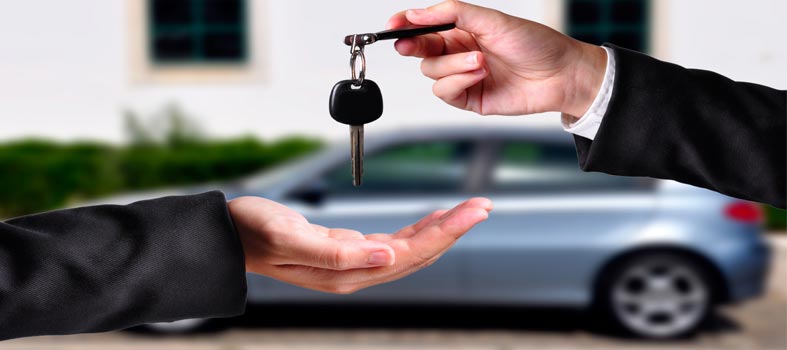
Today, it is not uncommon for a vehicle to be subject to a number of restrictions for certain reasons. The latter are usually associated with sales or registration.
But even here there are people trying to sell such a car, carefully hiding the fact of the presence of encumbrances.
That is why, for a potential buyer, it is extremely important to make sure at the pre-sale stage that the purchased object is “clean”, so as not to lose the money invested in the purchase later.
The essence of car seizure
The seizure of a vehicle is a series of measures taken by government agencies (bailiffs or customs services) regarding a specific vehicle.
This is done to prevent or eliminate the consequences of illegal fraud on the part of the owner that are associated with the operation of the car. When a vehicle is seized, a ban is imposed on its sale, transfer of ownership to third parties, and so on.
The decision to seize the car is made by the court. The owner of the vehicle is notified of this by informing the court officials.
The troubles of purchasing a car with restrictions
There is a significant difference between impoundment and vehicle restrictions. After the vehicle is seized, access to its operation is closed, and it remains in a special parking lot.
However, if the car is stolen, the actual arrest is not made, but a search for the vehicle is announced with the assignment of restrictions regarding registration. In the process of acquiring such an object, the new owner has problems with registration.
Today, the procedure for buying and selling used cars has been simplified to the maximum. All that is necessary is to correctly enter the requested data into the contract, securing it with signatures. There is no need to have the document certified by a notary and deregister the car.
Despite the fact that the contract contains a clause about the absence of arrest or registration restrictions, you should not completely trust the words of a stranger.
If done correctly, the vehicle seller should immediately notify you of the presence of encumbrances on the car.
If the actual owner of the car is not a swindler, then he will do so, because the new owner, one way or another, will be faced with this fact during the period of registering the vehicle. Otherwise, you should check the car for restrictions .
To find out whether the selected car is under arrest and whether restrictions have been imposed on it, you can submit a request to the traffic police or the FSSP. In this case, you need to describe in detail all the information you have about the car. In this case, the selected government department will give you a written response, which will indicate the presence of registration restrictions and their reasons, or their refutation. But this method is long and may take several days to implement.
To significantly reduce the time spent on obtaining a detailed report on the presence of encumbrances on the vehicle you are interested in, you can use the services of the professional portal check-auto.rus and check the car for restrictions .
Here you can submit an application for a detailed vehicle inspection in just a few clicks.
It is enough to indicate the VIN code or state number of the car in the central field of the site, and then inform us of your email address, where a detailed inspection report will be sent.
We work quickly and efficiently, opening the eyes of potential buyers to the most sophisticated shady schemes of scammers. The portal check-auto.rus cooperates with all public and hidden services, creating an up-to-date selection of the most reliable information about cars.
Source: https://xn—-7sbbfdo9a3ahbld5a.xn--p1acf/proverit-avto-na-ogranicheniya
How to check a car for registration restrictions and legal frequency | Legal Advice
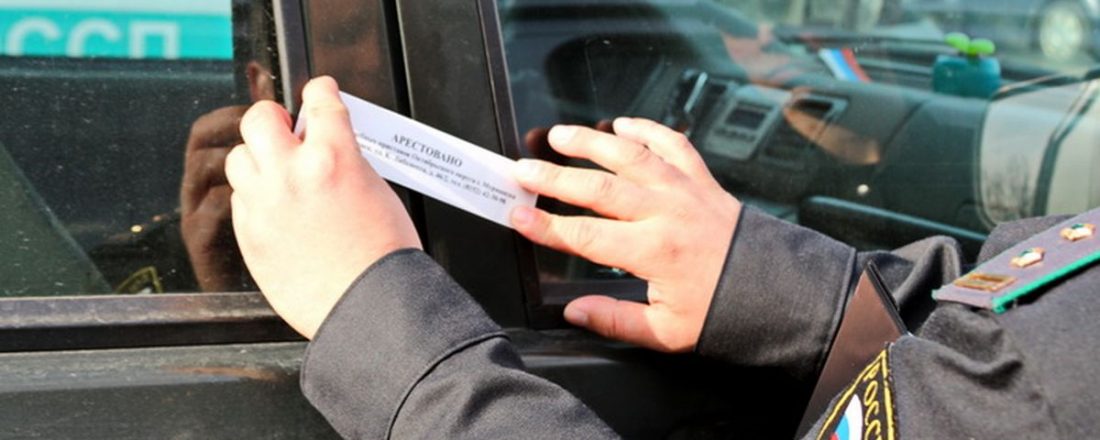
Last updated March 2018
Buying a used car always involves risks. But did you know that they can be significantly reduced? This article will tell you in detail about how to check a car for legal purity, registration restrictions, what is the difference between these two checks, and how to find out the “dark past” of not only the car itself, but also its owner.
If you buy a car, then before you get behind the wheel, you will have to register it with the traffic police.
And if the vehicle is purchased secondhand, then at the time of registration, not very pleasant circumstances may arise that do not allow this procedure to be completed.
This means that the movable property you purchased may be subject to registration restrictions. What do we mean by this?
Restriction of registration actions implies the imposition of a ban on registration with the traffic police in order to prevent transactions of a civil nature with the vehicle in question.
The table will help you figure out which bodies and in what situations can impose such restrictions.
| Organs | Example situation |
| Courts | If a dispute arises regarding the ownership or division of property, so that it cannot be sold before the court makes a decision. |
| Investigative |
|
| Customs | If you suspect incorrect customs clearance of the vehicle. |
| Social protection | When registering a vehicle in favor of minors. |
| Bailiffs |
|
Many owners learn about existing restrictions when they begin to register a vehicle. This comes as a shock to them - after all, the money has been spent, the deal has been finalized, and it is not possible to return everything back.
But the most prudent know that every Internet user has access to an online check of the ban on registration actions.
How to check a car for registration bans
The Internet space provides us with several resources that allow us to track information about a specific vehicle, including registration restrictions. Some of them belong to government agencies, others - to private individuals, and depending on this, the nature of the use of resources is determined - respectively, free or paid.
- Government (free) online resources. Their advantages are the officiality of the data and free access to them.
- http://www.gibdd.ru/check/auto/ is a website of the State Traffic Inspectorate, which allows you to check the registration history of a car with the State Traffic Safety Inspectorate, its participation in an accident, whether it is on the wanted list, and the presence of restrictions using data on the VIN number, body and chassis.
- http://fssprus.ru/iss/ip_search – website of the Federal Bailiff Service, which will help verify the identity of the owner of a car for participation in enforcement proceedings, as well as for suspicion of committing a crime. To use it, you need to know information about the owner, not about the car, so the information received will be of a more general nature. However, when comparing the available facts, it will not be difficult to understand whether it is worth contacting this seller.
- http://services.fms.gov.ru/info-service.htm?sid=2000 – website of the State Administration for Migration Issues of the Ministry of Internal Affairs of the Russian Federation, where you can check the validity of the car owner’s passport. Regarding the car, you will not learn anything from this resource, but if you receive confirmation that the vehicle seller’s identification document is fake, this already says a lot.
- https://www.reestr-zalogov.ru/ – The Federal Chamber of Notaries relatively recently made open access to its databases. Now everyone can check whether the car they are selling is under collateral or on credit. Read more about how to check a car for collateral with a bank here.
- Paid databases (generalized). They represent portals that generate mainly information regarding the credit encumbrance or collateral of the vehicle. These are intermediaries who buy information from banks, then, based on it, they form generalized databases, which they provide access to everyone for a fee. The data is regularly updated, and therefore its advantage is considered to be the efficiency and relevance of the information.
- http://vin.auto.ru/ – here you can check your car for collateral and credit with 13 leading Russian banks, as well as find out the characteristics of the vehicle and get data on North American cars using the Autocheck system. Now the portal is open for cooperation with other banks, which means its base will continue to expand. All you need to do is enter your VIN code, pay in any of the possible ways and wait for a letter to your email.
- https://www.banki.ru/ - a site that cooperates with 200 banks, covers information on 70% of pledged cars. To use it, you will have to register and pay 300 rubles. Then fill in the required fields - VIN, number and series of the vehicle passport, and then additional (if you have information) - engine number, chassis number, body number. Your personal account on the website will receive a response in a few seconds.
- http://mycar-info.ru/ is the most extensive portal in Russia. His informants are more than 1,200 credit institutions (banks, car pawnshops, etc.). You need to enter the VIN number, series and PTS number and pay for the service, after which you will receive a report by email within 1 minute. The speed is explained by the automatic generation of the requested information, which allows you to find out what you are interested in at any time and day of the week.
- https://www.cbr.ru/ – state register of the Credit History Bureau. Despite the adjective “state”, information from it can only be obtained for money.
- http://www.bki-okb.ru/ – formed by Sberbank of the Russian Federation, but now it combines the databases of more than 600 banks, microfinance organizations, insurance companies, and mobile operators.
If a car is pledged to a bank, this does not mean that a ban on registration actions has been imposed on it. It may not come to this if you pay off the debt of the vehicle seller to the bank, because this is actually the purpose for which it is being implemented. That is, if you checked the car and found confirmation of its “collateral”, do not rush to panic. The issue can still be resolved without imposing a ban.
But it’s a completely different matter when the problem comes to court proceedings, during which a decision is made to collect the collateral. Then, in pursuance of this decision, the bailiffs will foreclose on you as the new owner of the collateral property.
Situation . Bublikov S. purchased a car from V. Gribov in March 2014. No problems arose when registering the vehicle: having registered, he used it for more than six months, until he received a notice from the bailiffs in October 2014.
It stated that his car was seized due to the fact that the court satisfied the claim of the bank, which, without waiting for the loan to be repaid, asked to repay the debt through the sale of collateral.
Her decision . Bublikov S. may sue V. Gribov.
with a demand to terminate the purchase and sale agreement, since the latter did not notify him of the encumbrances of the car (Article 460 of the Civil Code). In view of this, file an appeal against the first court decision and at the same time send to the court a petition to suspend the proceedings under Art. 215 of the Code of Civil Procedure until a decision is made on his claim against V. Gribov.
However, the practice in the courts is such that the interests of a bona fide purchaser are not protected, but on the contrary - the principle “the collateral goes with the property” applies. That's why the courts side with the banks.
But you still shouldn’t give up. As an option, you can try to initiate a criminal case against V. Gribov under Art. 159 of the Criminal Code (fraud).
If the investigation proves his guilt, then it will not be his property that will be seized, which means that if he refuses to compensate for the losses caused, everything will go under the hammer.
But this method will only be effective if Gribov has this property. And if he still has debts, then you are unlikely to wait for a solution to your problem.
Therefore, the mere fact that a car is pledged does not mean that it is subject to a ban on registration actions. But for you this is already an alarming signal, which notifies you that, if not now, then in the future problems may arise with such property.
Read about how to quickly check a car for collateral at a bank here.
Is checking for legal purity and restriction of registration actions the same thing?
Since there is no precise legislative definition of legal purity and restrictions on registration actions, it is possible to draw conclusions about how these terms relate to each other only on the basis of legal practice.
These concepts are compared with each other as general and specific, namely:
How to check a car for legal purity
Customs clearance
If you are going to cross the border of the Russian Federation, then first of all check it for customs clearance. You can do this on the following resources:
- http://www.customsonline.ru/
- http://brokersonline.ru/
In addition, you can contact the customs authorities with an official request. But here you will have to wait, unlike the option above.
But you will receive an official document, while online resources are unofficial sources. In response to the request, you will be informed whether your car went through customs clearance, that is, whether taxes were paid upon its import.
If not, then be prepared to pay a considerable amount when crossing the border - usually about half the cost of the car.
Example . Ivanenko V. purchased a car in the spring of 2012. A year later - in May 2013 - he decided to visit relatives in Ukraine. Until this moment, the car had not had any problems with the law.
At the checkpoint, a customs officer informed him that he would have to: firstly, pay a fine, and secondly, hand over the vehicle title, since an imported car that was not subject to duty is considered contraband and is subject to confiscation.
Hijacking
This can be done on the official website of the traffic police indicated above, as well as on some other portals:
- http://vincarfax.ru/
- http://infovin.ru/
Next, we rely on online portals, but we don’t make a mistake ourselves - we pay attention to the appearance of the car, namely the markings:
- chassis;
- body;
- engine.
Check if they match what is indicated in the documentation for the machine.
Pay special attention to inspecting license plates. The main evidence of their illegal change is, as people say, “overkill.”
An examination will also help identify a stolen car. Experts do not provide it for free, but by paying them money, you will insure yourself against more serious losses in the future.
Sawing
To evade paying customs duties, many enterprising citizens cut up the vehicle. Then the transported property is considered not as a car, but as scrap or its spare parts. Accordingly, the latter are subject to duty several times less than the entire structure.
You can see the saw marks yourself. If there are suspicions, but the naked eye cannot find evidence, you can order an examination.
When you need to find out if there is any suspicion of cutting without leaving your home, use online resources that allow you to check the package contents:
Road accident
You can find out whether the car was involved in an accident directly from the traffic police or by going to their official website and using the online check.
Keep in mind that they will only have information on “official” accidents when a report was drawn up by the traffic police. Information about ordinary accidents, the problems of which are resolved privately, is not entered into the databases.
Insurers also have data on road accidents, since after an accident they pay insurance benefits. Many insurance organizations create databases where you can check whether you have made payments in connection with an accident.
The remaining methods - to check whether the car has been involved in an accident - are similar to the previous ones: you can use numerous online resources, perform an independent inspection, or conduct an examination.
Source: http://juresovet.ru/proverit-avtomobil-na-ogranichenie-registracionnyx-dejstvij-i-yuridicheskuyu-chastotu/


